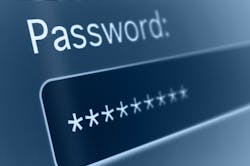Lack of password protocols remain security’s black hole
By combining a disciplined regiment of password strength retention with some key technologies, individuals can greatly reduce exposure to cyber security breaches. As simple as that may sound, however, examples of the negative consequences resulting from poor technological security continue to pile up every year.
Either from their own missteps in online security, or increasingly from the failures of corporations they trust, Americans are more exposed to security threats today than ever before. Additionally, with an increasingly large amount of data and services stored on and hosted in the cloud, even if greater security measures are taken, the risks and potential access points to data will continue to rise.
Where Are The Vulnerabilities?
As much as it sounds like something that should have been long since adopted, password security is still mostly unaddressed by the masses. This is safe to say because it was only this past year in 2014 when “password” ceased to be the most commonly used password for many applications. While that type of disregard is inexcusable, though somewhat more understandable for personal users, large corporations are not much better.
Specifically Sony, who suffered their second massive breach in the past three years, was found in the thousands of their leaked documents to have committed similarly heinous password crimes. In defense of the multibillion-dollar enterprise, Sony has an incredibly high amount of variables to protect from being compromised and, as such, is far more likely to be the target of an attack. Although the media giant isn’t responsible for the hackers who focused on them, they are responsible for storing all of their executive’s passwords en masse in unencrypted folders on shared drives.
Changing Platforms Doesn’t Solve Everything
Switching all email to an ephemeral messaging system seems like an attractive hedge against cyber piracy for many. These services are similar in concept to the fictionalized taped recordings for secret agents that would self-destruct upon completion. While emails, texts, and documents will not self-destruct, ephemeral messaging essentially sends messages with an expiration date for at or shortly after the point that it is received.
Two major drawbacks to this strategy are that you lose your ability to archive messages and the message is still only as secure as the platform it is sent through. SMS text and email data is not as secure as it seems and, as has occurred already with ephemeral powerhouse, Snapchat, data that was earmarked for erasure can still be compromised directly from the service provider.
What Precautions Can Be Taken?
In addition to creating unique passwords that are known only to the owners who use them, there are also certain technologies that can be employed to ensure proper data integrity. While not everyone knows how to encrypt email or is willing to pay for encryption services, most people do have access to a fax machine. As surprising as it may be to those who view faxes as a dated technology, it remains in widespread use all over the globe. In some cases, faxes are used for worldwide communications because phone lines are more likely to reach into corners of the globe where internet access has not. However, faxes are often the only option for many businesses even in the most advanced modern societies, as well.
More than just being a matter of ubiquity in the global marketplace, faxing also remains one of the most secure methods of document transmission available, short of hand delivery. The unique data link method specific to faxing is so secure, in fact, that it is the only method of document transmission that is both HIPAA compliant and recognized by the American Bar Association as being admissible as evidence in a court of law.
Even faxes that are sent using a hosted phone service operate with the same point-to-point facsimile transfer that is immune to third-party interference. With VoIP (Voice over Internet Protocol) hosted phone lines also now supporting document faxing, this technology is sure to remain a mainstay of secure communications for years to come.
Cyber crime will persist to be a growing threat for businesses and individuals, but that risk can be mitigated. Eliminating lackadaisical password creation, strategically employing the right telecommunication options for the given situation, and always exercising caution when downloading new apps will go a long way hedging against the growing risk of cyber crime.
About the Author: Dan Quick is the Marketing Content and SEO Specialist at VirtualPBX with a background in finance and journalism. For more information, go to www.VirtualPBX.com.
